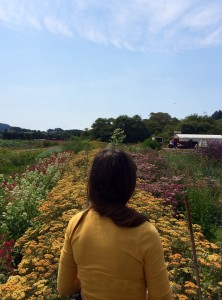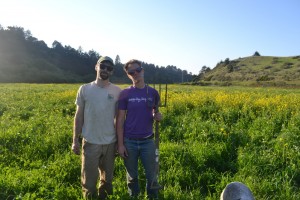A breast exam. An eye doctor. An STD test. These are all reasons someone on the South Coast might drive 25 miles to the nearest health clinic. Fortunately, anyone who comes to Puente’s inaugural community Health Fair on October 19 will have access to all those medical services – for free.
“There is so much need in the community for preventive services and screenings,” says Molly Wolfes, Puente’s Community Health Coordinator, who has organized the fair.
That will change for good once Puente and its partners at the San Mateo County Health System introduce a new mobile health clinic in 2015.
But in the meantime, the Health Fair will have nearly everything on offer, including Puente’s annual flu vaccination clinic, which will no longer occur during Dia de los Muertos. Professionals will be on hand for hearing tests, skin screening, blood pressure and diabetes screenings, family planning, and referrals for everything mentioned above. Information will also be available about health insurance coverage, CalFresh, and the many programs for which eligible South Coast residents can enroll at Puente.
Puente has invited a number of experts to present workshops as well as to lead exercise sessions on yoga and Zumba. Topics include spiritual health, disaster preparedness, repetitive stress injuries, and preventing harmful pesticide exposure for farm workers.
No Puente event would be complete without healthy snacks, and there will be plenty on hand for kids and adults. Thanks to Kaiser Permanente, Puente now has two blender bikes so attendees can take turns pedaling the blenders to make smoothies. Puente will also raffle off cool donated fitness gear.

Kids will be happily entertained by a Bike Rodeo, courtesy of the San Mateo County Bike Alternatives Program, Peninsula Traffic Congestion Relief Alliance, Silicon Valley Bike Coalition, Siena Youth Center, and BikeSmart.org. Anyone who does not own a bike helmet will be given one to keep.
Puente needs your help to make the Health Fair a success. Before October 19, Puente needs to find an optometrist willing to donate four hours’ worth of free eye exams. Puente also needs two people who can help act as Spanish-English translators; a portable massage table; and additional volunteers to help cook healthy food the day before the Health Fair.
Contact Molly Wolfes to help: (650) 262-5989. The Puente Health fair is October 19, 11 a.m. – 3 p.m., Pescadero Elementary School Multi-Purpose Room, 620 North St.







